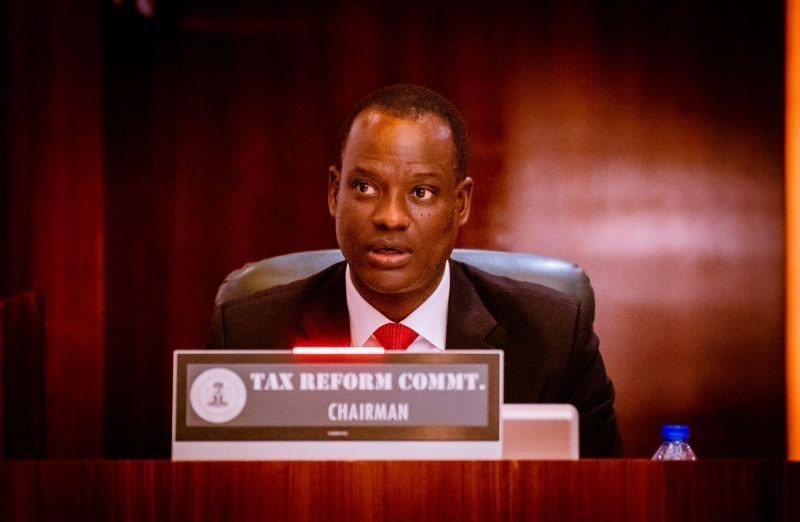The Nigerian government, through the Presidential Committee on Fiscal Policy and Tax Reforms, has proposed a 5% fuel surcharge slated to take effect in January 2026. This surcharge, enshrined within the newly enacted Nigeria Tax Act, 2025, aims to create a dedicated fund specifically for the rehabilitation and improvement of the nation’s deteriorating road infrastructure. The proposal has sparked public apprehension, particularly regarding its potential inflationary impact, prompting the Trade Union Congress to threaten a nationwide strike if the government fails to rescind the tax. Taiwo Oyedele, Chairman of the Presidential Committee, has addressed these concerns, emphasizing that the surcharge’s primary objective is not to burden citizens but to address the critical issue of inadequate road networks, which significantly contributes to high transportation costs and economic inefficiency.
Oyedele acknowledges the public’s anxiety about the potential for increased inflation but argues that improved road infrastructure will ultimately lead to lower costs for transporting goods and services. He highlights the significant disparity between food prices in rural and urban areas, attributing much of this difference to the poor state of Nigerian roads and the multitude of levies imposed on goods in transit. He further clarifies that the 5% surcharge isn’t a new concept, having been introduced in 2007 but left unimplemented due to the then-existing fuel subsidy regime. While the recent subsidy removal has created some fiscal space, Oyedele contends that these funds alone are insufficient to address the country’s substantial infrastructural deficit. Therefore, the surcharge becomes a necessary measure to generate the required resources for road development.
The Chairman emphasizes that the implementation of the surcharge will be carefully managed to minimize any adverse effects on inflation and vulnerable populations. Strategies include timing the implementation to coincide with periods of currency appreciation or declines in international crude oil prices, which would mitigate the impact on pump prices. Furthermore, the funds generated from the surcharge will be ring-fenced, ensuring their exclusive allocation to road infrastructure projects, enhancing transparency and accountability in the utilization of these resources. This dedicated funding mechanism aims to instill public confidence that the collected funds will be used effectively for their intended purpose, addressing a critical national challenge.
Drawing parallels with the successful Road Infrastructure Tax Credit Scheme, which enables private sector participation in road construction through tax incentives, Oyedele suggests a similar approach could be adopted for the surcharge. This scheme has yielded positive results, particularly in areas like Apapa, where private companies like Dangote, NLNG, Lafarge, and MTN have contributed significantly to road improvements. Leveraging private sector expertise and investment in road development can accelerate the pace of infrastructure upgrades and complement government efforts, ensuring efficient utilization of the surcharge funds. This collaborative approach aims to maximize the impact of the initiative and expedite the realization of its objectives.
Oyedele advocates for an open-minded approach to the proposed surcharge, emphasizing that if the policy proves ineffective after implementation, mechanisms exist for its reversal through the National Assembly. This assurance underlines the government’s commitment to adapting to evolving circumstances and prioritizing the welfare of citizens. The success of the Road Infrastructure Tax Credit Scheme serves as a compelling example of how public-private partnerships can effectively tackle infrastructural challenges, providing a potential model for the implementation and management of the fuel surcharge. By engaging the private sector, Nigeria can harness its expertise and resources to accelerate road development, thereby mitigating the burden on public finances and maximizing the impact of the initiative.
In essence, the proposed 5% fuel surcharge represents a strategic move by the Nigerian government to address the critical state of its road infrastructure. While concerns about inflation are valid, the government insists the long-term benefits of improved road networks will outweigh any initial cost increases. The proposed careful implementation, ring-fencing of funds, and potential involvement of the private sector are all designed to ensure efficient and transparent utilization of the resources generated. The ultimate goal is to create a more robust and efficient transportation system, which will boost economic activity, reduce the cost of goods and services, and improve the lives of all Nigerians. This ambitious undertaking necessitates public understanding and support to ensure its success and the realization of its intended long-term benefits.














